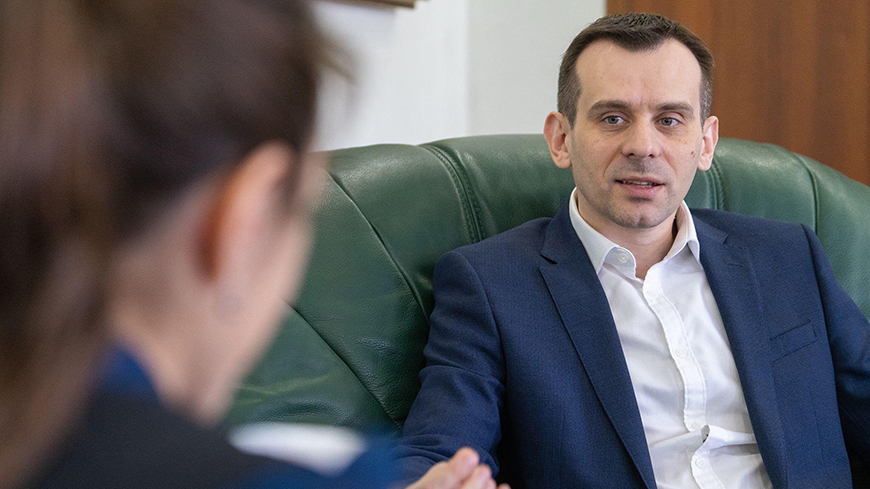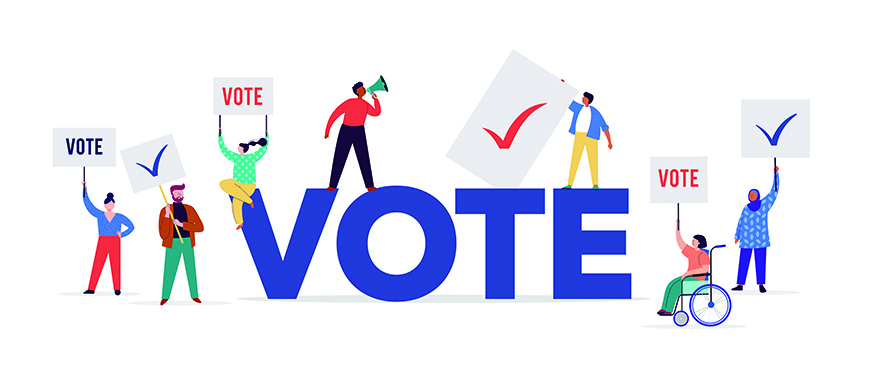Elections and COVID-19, Council of Europe’s approach
Whether member States decide to hold or to postpone elections, specific arrangements will be required for administering such elections and for ensuring the basic tenants of a public debate allowing citizens to be properly informed and to debate the options on offer. Electronic voting or a hybrid version of it -combining different types of supports- could be a very credible way out.
CM/Recommendation (2017)5 on standards for e-voting provides an excellent basis for introducing ad hoc voting arrangements with solid security guarantees whilst fully respecting European election standards. Digitalisation of electoral processes can be a viable alternative so as to ensure that democracies continue even in times of pandemics...
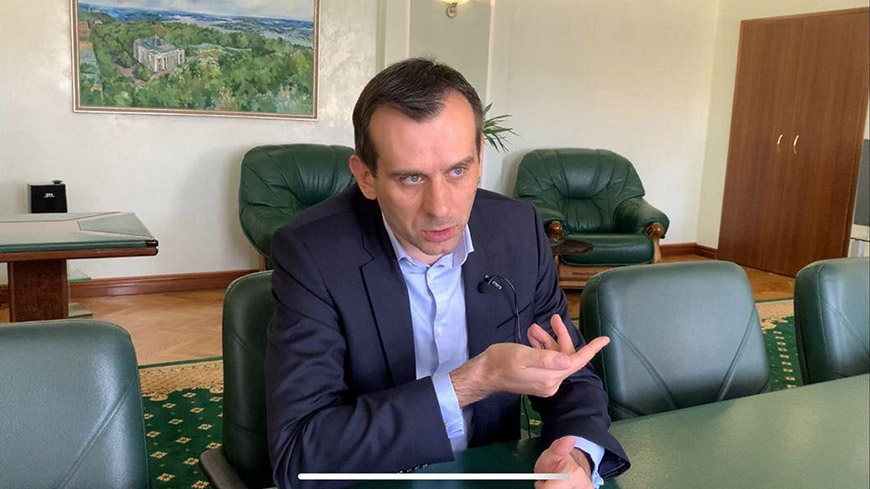
Preparation and conduct of 2020 local elections in Ukraine in context of quarantine restrictions
Interview with Mr. Oleg Didenko, Chair of the Central Election Commission (CEC) of Ukraine
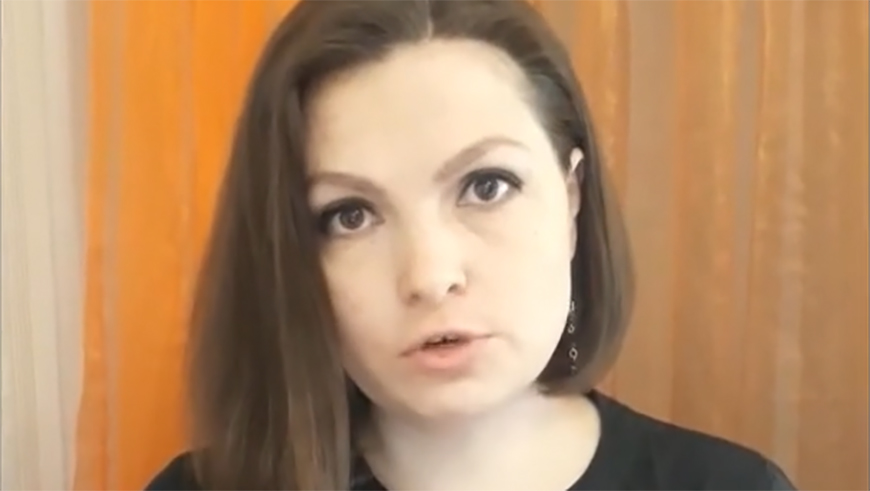
Interview with Dr. Doina Bordeianu
Director of the Centre for Continuous Electoral Training by the Central Electoral Commission (CEC) of the Republic of Moldova
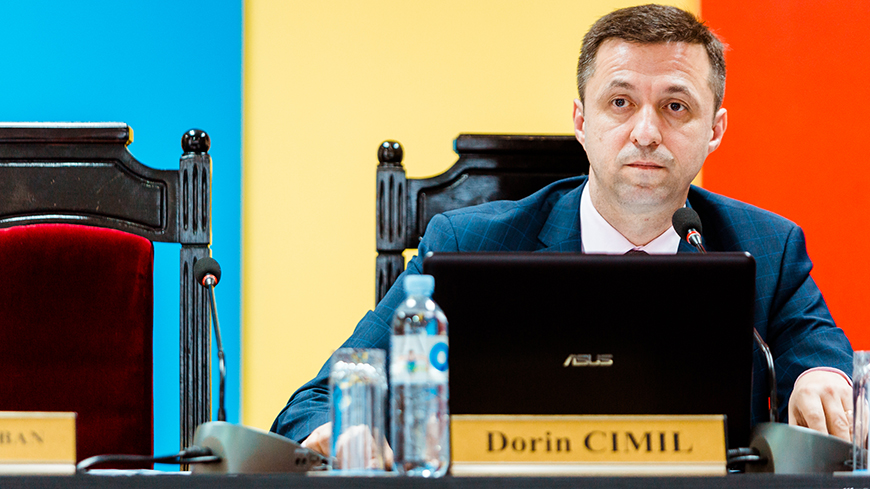
Interview with Mr. Dorin Cimil
Chair of the Central Electoral Commission of the republic of Moldova
Dear colleagues,
Central Electoral Commission of the Republic of Moldova highly appreciates the activities and projects implemented by the Council of Europe (CoE) to support and promote participatory democracy in our country. In this regards we would like to extend our gratitude for the initiative to create a communication network that will help member states to share their experience to face the issues linked to the organization of elections in pandemic conditions.
COVID-19 has spread worldwide extremely fast and unfortunately the Republic of Moldova is not an exception. The measures taken by Government, in order to slow the expansion of virus, have affected and created challenges to all areas of activities, including the organization and conducting of elections.
The first cases of COVID-19 have been officially registered in the Republic of Moldova at the same time with the organization of early parliamentary elections in one single member district. By March 15, 2020, when elections were held, cases of illness were also registered in the electoral district. According to the provisions of our legislation, we could postpone the organization of elections only if the country is under a state of emergency, siege or war but it wasn’t the case. So we have addressed to the responsible state authorities that have advised us to continue the organization of the electoral process.
As we were concerned about the health of voters and of electoral officials, we have taken several measures to insure a safe electoral process. CEC issued a circular for the electoral bodies, which included a series of indications necessary to protect our citizens. The chairpersons of the Precinct Electoral Bureaus had to ensure on Election Day, the order inside the polling stations and in the surrounding territory, within a radius of 100 meters from the polling station, preventing the presence in one place of more than 50 people and to guarantee the safe distance between voters. At the same time, the polling station premises had to be disinfected, and the application of gauze on the door handles at the respective polling stations was prohibited. CEC has supplied the poll workers with disinfectant solutions and protection equipment.
In order to tabulate the elections results, the electoral materials, including protocols have been transmitted in scanned version. In order to receive the printed version of all electoral documents, CEC has prepared a separate space, outside the building of the Commission and the staff involved in this process was properly endowed with protection equipment.
After elections, the state of emergency was established in our country. In this conditions, CEC members and staff have started to work remotely, according to the recommendations of the Commission for Exceptional Situations of the Republic of Moldova. This new situation wasn’t very challenging for us as the document circuit in our authority was done already electronically and modern communication technologies were widely used, including various mobile applications (Viber, WhatsApp, Facebook Chat etc.). The e-mail has to be checked daily by the staff and CEC meetings were organized online. The relations with our partners and state authorities were maintained also by email and we have participated in some online public events.
In the same time we have suspended the organization of the early local elections in several localities that were planned for the May 17, 2020.
Unfortunately, because the spread of COVID we had to cancel several electoral information and education activities, some trainings for different stakeholders and the participation to a few international conferences, study visits and elections observations in other countries.
Of course, the biggest challenge for us will be the organization of the presidential elections that are scheduled for the end of this autumn, as according to the opinion of the majority national and international experts, the second wave of the pandemic can occur during this period. In this regards we are aware about the preparation activities that CEC will have to undertake much earlier before the elections date will be officially announced.
No matter how many challenges will come and the increased workload, we are sure that we will face it, as during the years CEC has built a strong team of professionals, stress-resistant and we have the support of our development partners. Also it will be very important to insure that all the electoral subjects will respect all the recommendations of the specialists in the field.
In the end I would like to wish you and your relatives good health and may your countries succeed to overpass successfully all the challenges connected to the novel COVID-19 virus. We would like to assure you of our openness and readiness to continue and to strengthen our collaboration for the proper organization of the electoral process.
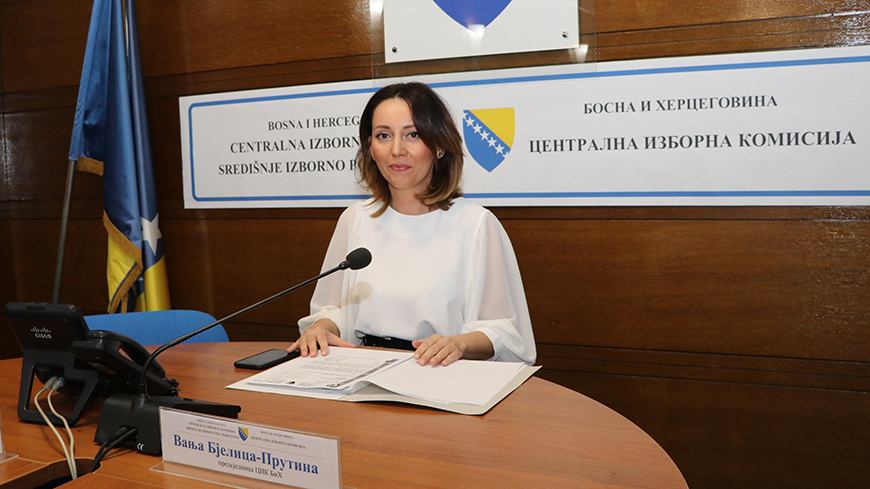
Interview with Mrs. Vanja Bjelica-Prutina
President of the Central Election Commission of Bosnia and Herzegovina, about the impact of COVID-19 on the election management bodies

- International Institute for Democracy and Electoral Assistance | International IDEA and COVID
- Virus-Proofing the Vote: Democracy Funders Respond to COVID-19 - Source 01/04/2020 INSIDE PHILANTHROPY
- COVID-19: A Survival Guide for Democracies - IFES
- Toby James, Should elections be postponed because of coronavirus? 16 March 2020
- Ingrid Bicu, Peter Wolf, International Institute for Democracy and Electoral Assistance (International IDEA), Elections during COVID-19: Considerations on how to proceed with caution, 18 March 2020
- IFES' Guidelines and Recommendations for Electoral Activities during the COVID-19 Pandemic, 19 March 2020
- Olha Aivazovska, Civil Network OPORA, Elections Amid the Pandemics, 25 March 2020:
- Erik Asplund, Toby James, Democractic Audit, Elections and Covid-19: making democracy work in uncertain times, 30 March 2020. The authors of this article are discussing the dilemmas countries around the globe face about holding or postponing elections during the pandemic, and set out some guidelines to follow in ensuring democratic participation remains fair and open during the crisis.
- Dr. Robert Krimmer, Dr. David Duenas-Cid, Iuliia Krivonosova, Why the pandemic may pave the way for online voting, 31 March 2020
- Meredith Applegate, Thomas Chanussot, Vladlen Basysty, International Foundation for Electoral Systems (IFES), Considerations on Internet Voting: An Overview for Electoral Decision Makers, 7 April 2020:
- OSCE/ODIHR: Genuine campaigning and public debate are vital for democratic elections, OSCE human rights head says, 7 April 2020
- Holly Ann Garnett, Behind the Screens: E-Government in American State Election Administration, Election Law Journal: Rules, Politics, and Policy, 8 April 2020
- Dr. Robert Krimmer, Dr. David Duenas-Cid, Iuliia Krivonosova, New methodology for calculating cost-efficiency of different ways of voting: is internet voting cheaper?, 28 February 2020
- International IDEA Technical Paper 1/2020: Elections and COVID-19
in the field of:



